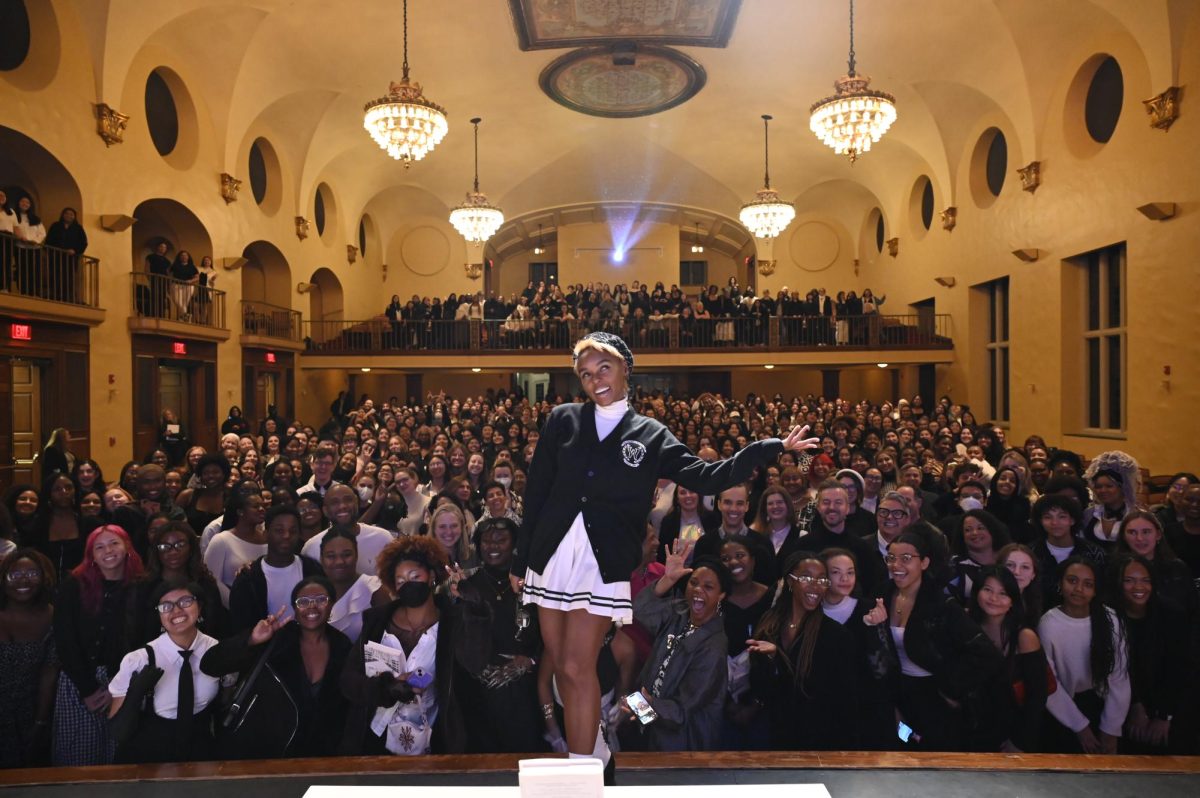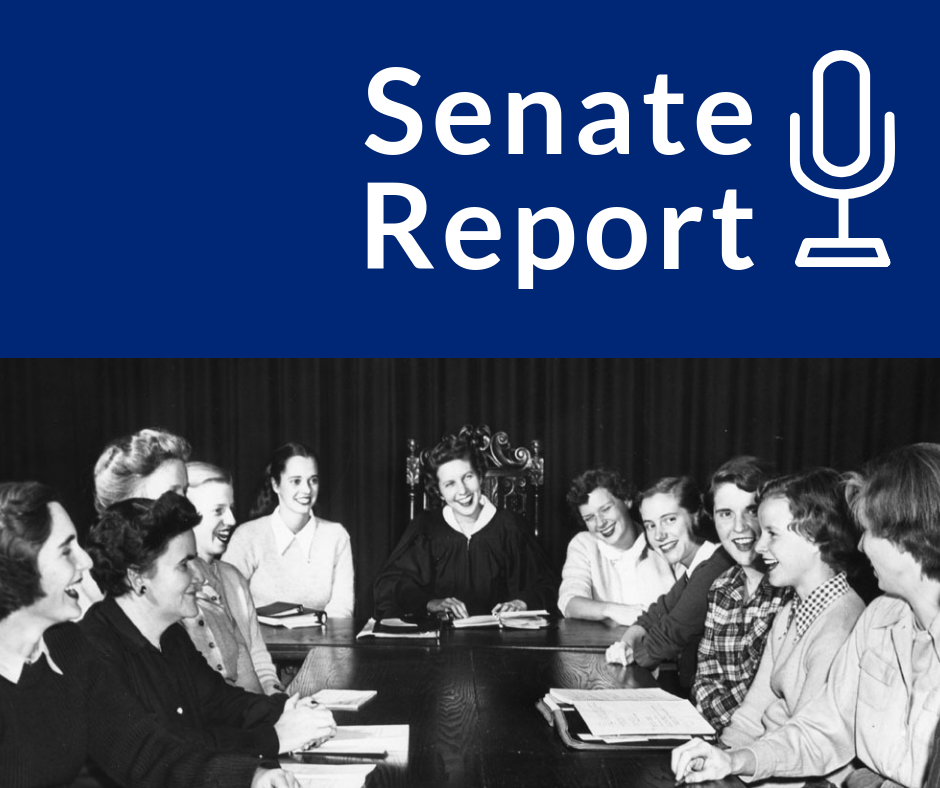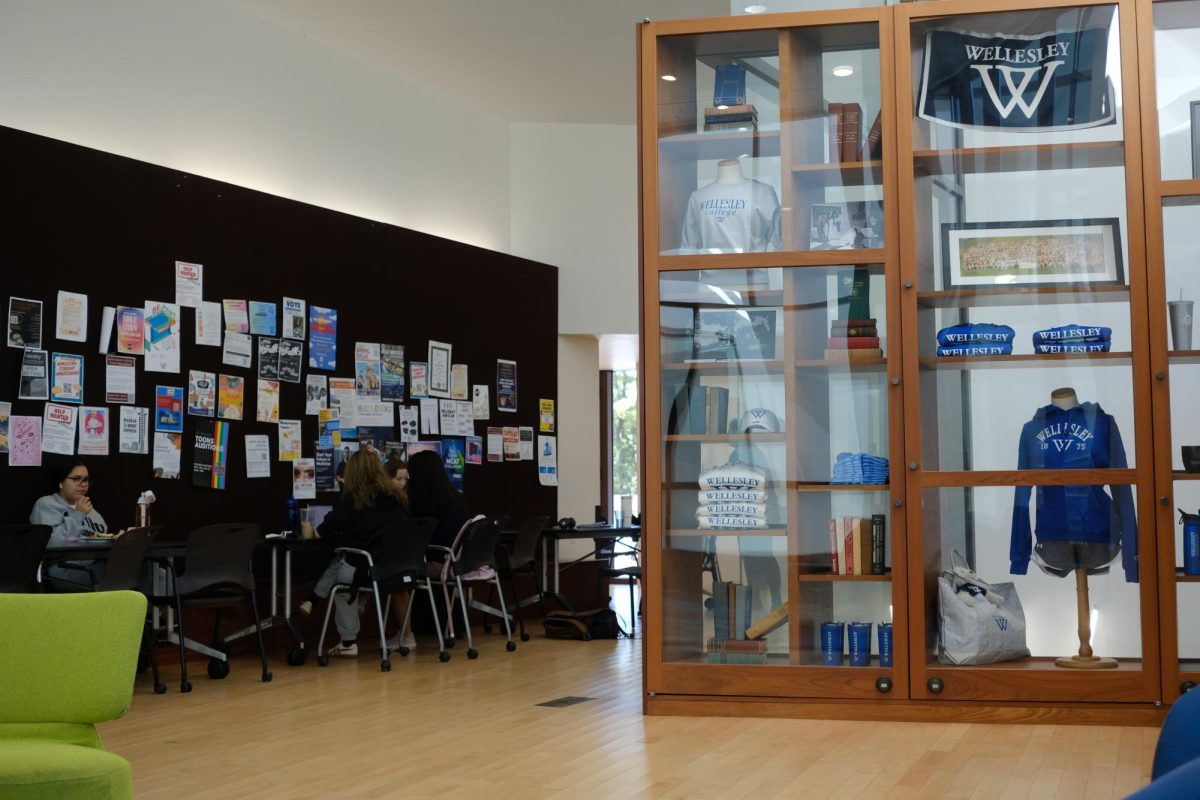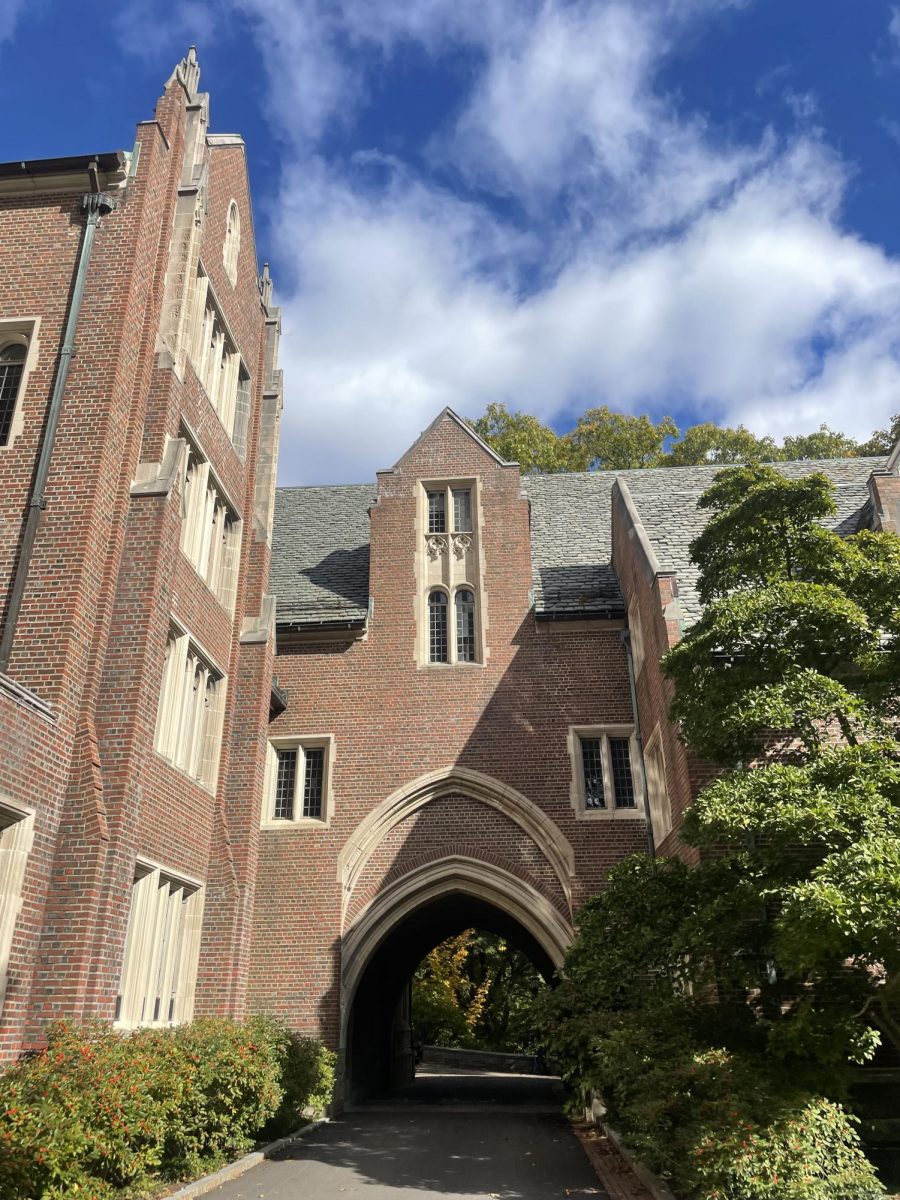The crowd erupted in cheers as Janelle Monáe, writer and 10-time Grammy-nominated artist, stepped onto the Alumnae Hall stage last Friday evening to speak about her Afrofuturist anthology, The Memory Librarian: And Other Stories of Dirty Computer.
This event culminated a speaker series celebrating the theme “Radical futures” for the 20th anniversary of the Suzy Newhouse Center for the Humanities.
“Because this is the 20th anniversary, we really wanted to be thinking about the legacy of the Newhouse. That’s where this idea of like radical futures came about,” said Irene Mata, co-director of the Newhouse. “Instead of just celebrating the past, as we envision a future that is very much ruled by technology, what is the role of the humanities?”
Nikki Greene, professor of African American art, initiated the event by asking Monáe about the beginnings of their career. Monáe described how she sees herself as a “worldbuilder” both in literature and in music.
Monáe began discussing Cindi Mayweather, an alter ego that they have developed throughout their career. Mayweather is an android in a human world, whom Monáe portrayed to be the “Other,” representing her identity as a Black queer person in today’s world.
Mayweather also represents Monáe’s motto, “to be of service,” as Mayweather represents Monáe’s “god-like self.” This motto extends beyond Monáe’s imaginary world, influencing her everyday look. The dress code for the event was black and white, a nod to Monáe’s personal black and white fashion that she uses to honor service workers in her family and community.
“I feel like [their use of black and white] really resonated with me as a first-generation college student and an immigrant myself. I always want to acknowledge the hard work my family has done for me to get this far,” said attendee Keza Ineza ’28. “It was a really nice reminder to never forget where you come from.”
Monáe’s anthology, “The Memory Librarian: And Other Stories of Dirty Computer,” expands on her album, “Dirty Computer,” where she explores memory cleansing and how memory can be used to empower. When asked about the connection between memory and social norms, Monáe spoke about how book bans are a form of memory cleansing.
“With book bans, those [lawmakers] are saying: ‘My story is more important than yours’,” Monáe said. “We need people to write more stories, so our memories — especially those of black and brown queer folk — are remembered.”
Monáe also touched on the concept of “time poverty,” which refers to lacking sufficient time to fulfill one’s interests outside of necessary work.
“What does it mean when you actually get time back? Do you share it with the rest of the community, or … do you hoard that time?” Monáe asked.
Since Monáe’s ancestors lost time because of enslavement and lack of bodily autonomy, she understands time as a form of white supremacy that has systematically oppressed the identities of marginalized people.
”Who am I when I’m not centering white supremacy?” she prompted the audience.
An answer to alleviating time poverty is using rest as resistance, according to Greene. While resting was not feasible in the beginning of her career, Monáe has recently embodied this mantra as a means of self-preservation.
“Advocate for yourself relentlessly,” said Monáe. “If you don’t use your time for yourself, someone else will.”
In the final portion of the event, Monáe was asked about how they fight for the preservation of her own identity as a Black and queer person. They answered by encouraging people to “take in moments.”
“So many people miss the moment because they are too busy trying to curate the moment,” Monáe said.
Afrofuturism in the classroom
While Monáe’s music is known to many, their literature might have been new to many at the talk. Fiona Maurisette, professor of Afrofuturist and Black feminist literature, had always used Monáe’s “Dirty Computer” as a soundtrack while reading work by bell hooks in her class “Black Feminism and the Future.” After learning that Monáe was speaking, Maurisette added Monáe’s literature to the syllabus.
“When the Newhouse brought Janelle as a writer and as someone who’s doing Afrofuturist thinking, then it was like, okay, I’ll add the short story. The addition was reading from ‘The Memory Librarian’ rather than just looking at the visual album,” said Maurisette, who is not affiliated with the Newhouse. “I incorporated the text so that my students would be prepared for when Janelle Monáe came to campus to have questions related to their writing, and not just their performance as an artist.”
Students in Black Feminism and the Future had reserved seating for the event after Maurisette spoke to the Newhouse about Monáe’s connection with their class content.
Ineza, who is also in Maurisette’s class, speaks about how Monáe embodies the transformation of Audre Lorde’s The Transformation of Silence into Language and Action. Lorde underscores that while fear prevents people from speaking the truth, people need to speak and protest despite fear.
“I think Monáe really embodies that transformation of silence into action, because they not only speak on all the different forms of oppression they see, but they do something about it,” said Ineza. “They wrote a really incredible book that calls it out and is relatable for other young, queer black folks. All the work they do is really them, transforming silence into actions, and I think that’s really something to aspire to.”
Newhouse directors invited Monáe not only to inspire students as people, but also as a storyteller in a time where students might feel powerless.
“Oftentimes, our stories can help us navigate feelings of powerlessness, bring us together, and can help us create communities of resistance. And that’s what I see as the power of Black Feminist worldmaking. They’re giving us a model of how we can use our stories of resistance and opposition to imagine something better,” Mata said.
For students, it seems Newhouse directors achieved their goal.
“As a black queer person who’s really into Afrofuturism and Afrosurrealism. It was amazing to see someone so high profile have similar experiences and interests as me,” said Ineza. “It was like being seen.”
Contact the editors responsible for this story: Lyanne Wang, Sazma Sarwar, and Valida Pau.




